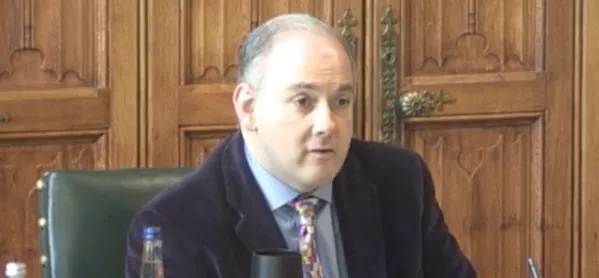The Department for Education has been accused of attempting to micromanage the evidence that local leaders of a £72 million social mobility programme gave to a parliamentary select committee.
MPs claimed that Opportunity Area chairs had been told what to say by the DfE when they appeared before the Commons Education Committee earlier this month.
However, a senior department official said nothing had been imposed on Opportunity Area members giving evidence.
Exclusive: Huge disparity in Opportunity Area spending
Social mobility: Parental choice discriminates against poor
North East: New fund targets struggling schools
There are 12 Opportunity Areas which have been given a share of £72 million to develop local plans to improve social mobility.
However, there have been concerns that the process is being too centrally driven by the DfE.
At a hearing today, committee member Ben Bradley MP said: “Why did the department feel the need to tell the people who came to our roundtable what they should say?
“They were all briefed beforehand by the DfE…It seemed like the template for their written evidence was prepared by the DfE as well.”
The committee chairman Robert Halfon added: “The evidence that came to us was micromanaged by the DfE. The template was very similar and the layout. Why was that felt necessary?
“The way evidence was sent in. The way witnesses were primed and briefed. It seemed to me that you were very much micromanaging the whole process.”
Hannah Streatfeild, the DfE’s deputy director for Opportunity Areas, said that nothing was imposed on the Opportunity Area chairs.
She said: “We didn’t brief everyone who attended as to what to say. I was in attendance to show support and commitment for the great work they do in their local areas.”
She said the DfE had worked with board members “in a supportive capacity rather than briefing them that they must say this or must not say that.”
She highlighted that some opportunity chairs giving evidence to MPs had highlighted concerns with the programme - such as Graham Cowley from Blackpool who had raised an issue about the National Citizen Service.
Mr Cowley had said that the DfE had “shoehorned in” an insistence that the Blackpool area board work with the National Citizen Service despite it not having a strong presence in Blackpool.
Mr Bradley also asked if there was a façade of local accountability “when really it is the DfE who decide what happens”.
“It seems to me from the discussions we had that the DfE is still imposing things. They were told which programmes they can and can’t do.
“I can’t really see how they can be independent and critical when ultimately they have been appointed and can be hired and fired by the DfE.”
Children and families minister Nadhim Zahawi said Opportunity Area boards were “fiercely independent” and passionate about their local plans. He said the plans were evidence-led rather than the imposed by the government.
Last year, a review of the Opportunity Areas programme revealed concerns that decisions are being too heavily dominated by the Department for Education.
Opportunity areas were set up to provide a “place-based” programme in 12 areas of the country where outcomes for children from deprived backgrounds was causing concern. Each area has developed its own three-year plan through a local partnership board.
A review of the programme highlighted concerns among some people involved in the first 12 schemes that the work was being “too heavily led by the DfE”.




